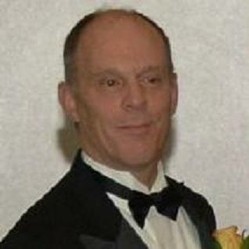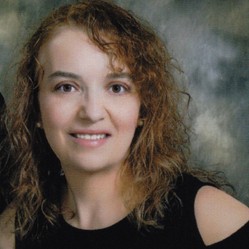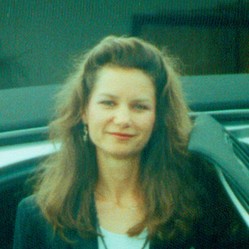I was born in the nineteen fifties in a southern state in the United States. Because my father had a job with a national firm and my mother played the role of "house-wife," we traveled quite a lot before I reached my teen years. In a way, I had about the same geographic diversity in living arrangements as a military brat.

About Me - Liam Bean
by LiamBean
I'm not really comfortable writing about myself. Is that really a surprise? Really, who is comfortable talking about themselves?
Childhood and Formative Years
Through my earliest years to my early teen years I lived in South Carolina, Tennessee, and Texas. I loved Tennessee with it's rolling hills and four seasons. It was an especially fun place in the winter when my brother and I would take a large dish shaped soft drink sign my father found somewhere and he and I would "toboggan" down the sides of hills around our home. Our dog, Prince, a rough coated collie, would shadow our "sled" all the way down the hill, barking, and prancing around the entire way.
Another thing that I enjoyed was watching my father work in the garage. He was the typical American hobbyist who made his own stereo system (before they were available for sale), made hardwood furniture, and modified common household items to serve new functions. For example, when we got a new refrigerator, he didn't throw out the old one. He repaired it and modified it to serve as a chilled beer dispenser.
I was also a classic introvert. Once I learned to read you very nearly had to pry a book from my hands simply to get my attention. Like so many boys in the sixties I loved adventure stories, science fiction, and science.
I was particularly interested in how things worked. Though I was a horrible student of history, I loved science classes and did moderately well in math. Oh yes, I also loved art. Another thing my father enjoyed, besides tinkering with gadgets, was painting. I guess I also got that from him.
Family Dissolution
We had a good life*, but as the saying goes, all good things must come to an end.
In my very early teens our parents split up and life changed drastically. From the age of thirteen to twenty-two my brothers and I lived a "hand-to-mouth" existence. Though there were laws in place to insure that a parent kept their financial obligation to their children, there was no enforcement of those laws. This meant that we worked as soon as we were able. My first job was quite literally a paper route.
Things were worse for my mother. She went from "house-Frau" to multiple job holder literally overnight. By working two and three jobs a week, she kept a roof over our heads. But there was a cost; we didn't get to see her as often as we once did.
Naturally, this lead to some (minor) trouble with the law from time to time. But we all survived.
I do remember that I made some of the best friends I've ever had. Money and status were not motivators; we had none. We hung out together simply because we enjoyed each other. There was no other benefit to be had.
I also learned that for some reason poverty marks you as "a lesser person." For some reason that was completely out of my control, I was less of a person to many simply because I was poor. I didn't understand that then and I don't understand it now; It simply was not logical.
Up to now I've been reading Sir Arthur Conan Doyle, Edgar Allen Poe, Edgar Rice Burrows, and Ray Bradbury.
A Stint in the Service
My early professions and Military Service
By the time I was seventeen I had been a paper carrier, short-order cook,and mechanic's assistant. I seemed to have a knack for figuring out the mechanical without a manual. That didn't prevent me from taking manuals home so I could read them at night and become more proficient.
I never abandoned my fiction though. I just didn't read as much of it as I liked. By this time my favorite authors included Robert Heinlein, Robert Silverberg, Larry Niven, Jerry Pournelle, Ray Bradbury, and Arthur C. Clark. When I mention Niven and Pournelle, I'm talking about their collaborative efforts; "Footfall," "The Mote in God's Eye," and "Lucifer's Hammer." I loved Clarke's view of alien life and the potential mystery of them, should that ever happen. I fell in love with Heinlein's "Stranger in a Strange Land." One of the most richly detailed science fiction stories ever written.
From seventeen to twenty-one I had been a cab driver, mechanic, short-order cook, hospital orderly, and mechanic again. I was a terrible cab driver since I was, and remain, "directionally challenged." But I did fairly well with the other jobs. I did drop the orderly position due to bad experiences with death and disease. I was just too empathetic to put my feelings aside in the drive to help others.
One particular fatality was especially devastating. I won't relate what happened here, but I quit that position within two weeks of the experience. I typically worked a six day week. Not a single week went by that I did not make at least five trips to the morgue. I went back to being an auto mechanic.
Though I was a competent mechanic (I guess I inherited my father's technical intuition) I could clearly see that this was not a profession with unlimited potential. I was also allergic to used motor oil. This became more than a minor annoyance anywhere that stuff landed on my skin. I had a painful and perpetual case of acne on my face, hands, and forearms. It simply wasn't going to work out as a life-long profession.
So in the late seventies I joined the U.S. Army and trained as a RADAR crewman. After almost three months of basic training I moved on to "Advanced Individual Training" and learned how to spot incoming mortar or artillery with the RADAR. I learned to do some minor repairs on the unit and learned how to be a good manager. In three years I rose through the ranks rapidly, from private to sergeant. By the end I had a crew of twelve working under me and was responsible for a half million dollars worth of equipment.
To say the military was good for me is an understatement. I was already somewhat confident in my abilities (though still an introvert), but I learned I could do some physical things that I might have found impossible before. This, in turn, gave me even more confidence in my capacity to take care of myself. It was a great experience. Oh, I also got to travel.
Perhaps the best thing about it though was that I learned that I could handle almost any situation. I already had more than my fair share of confidence; the military gave me even more. When I mustered out three years later I still did not have a marketable profession, but that didn't matter. Since the RADAR had a computer built into it, and part of my maintenance duties were to calibrate it, merely mentioning "computer" on my resume opened a new world of work to me.
In the early eighties, when the IBM PC first made its appearance on the market, I had a skill that was in high demand. I could work on the machines and program them too.
Truthfully, the only reason I learned programming in the first place was so I could test the hardware repairs I was making. It only took a couple of months to determine that programming was a much cleaner line of work than repair. It paid better too.
So for the next thirty-five years I worked as a database programmer and made a very decent living. Unfortunately, I didn't have much of a personal life; a hazard of that profession.
I continued to take manuals at home at night and, when time permitted, read my favorite form of fiction. I began reading the more "subversive" authors. This included Philip K. Dick and Stanislaw Lem.
I singularly liked the way Dick could tell a dark tale and drag the reader into it.
I also like the way Lem proposes what it would be like when we meet "alien" life, it may be so foreign to us that we will never understand it. Some of his best works are about encounters that humans simply cannot fathom.
And having Read I Moved on to Write
A natural progression
Part of my duties as programmer was to explain, in writing, how the programs worked and how the "end user" could get the most out of my programming. This required that I write a technical manual and a user manual. Usually in that order.
My decades long love affair with books didn't help with the technical manuals much, but it certainly helped with the user manuals. I also found out that I love to explain things.
As of this writing I am sixty-four, I still enjoy reading Philip K. Dick stories. They are so rich in texture that they can be read many times and the reader can find new things in them each time. I have also expanded my favorite authors to the women of SciFi. Ursula K. Le Quin, Kage Baker, Naomi Novik, and perhaps my favorite, Lois McMaster Bujold. I've found that the woman author is just as good at telling speculative fiction, but her take is often more more palatable and, in many ways, much more creative. Where a man's story usually involves war and bloodshed, a woman's take on future conflict is more about the effects of violence and how people will (or can) adapt.
I continue to write as if I'm writing a "user manual;" it can't be helped I guess, but I do try to provide a lot of depth to my work. My "History of" articles are particular points of pride. Most of them follow a time-line of discovery, use, written history, and modern usage. It is in my genes to want to know how things came to be. I also like to explain things.
* Life wasn't quite as good as I make it out to be above. Alcohol and addiction featured prominently in my parents failed marriage. It also meant that we children sometimes suffered at the hands of a violent drunk. So it goes.
You might also like
Welcome to sockii's worldWho is sockii? If you're asking yourself that question, let me introduce myse...
Coletta Teske, Writer for HireColetta Teske has been a freelance writer for over 30 years. She is a native ...



 Crêpes and Crêpe Disheson 09/14/2016
Crêpes and Crêpe Disheson 09/14/2016
 About Ebolaon 11/08/2014
About Ebolaon 11/08/2014
 Buns and Rollson 09/04/2013
Buns and Rollson 09/04/2013


Comments
One of my all-time favorite stories is still "Lathe of Heaven."
The key to programming, in my opinion, is to bear in mind that you are telling the machine how to do things in very simple steps. Over the years those "steps" have become more all encompassing, but they are still steps.
My suggestion is to sit down with a manual, in front of your machine and practice the instructions you learn.
Ahhh. Someone who speaks my language. Arthur C Clarke and Ursula Le Guin remain perennial favorites. I am a database nut although so far the programming has eluded me. I'm happy to sit and input data into a database though.
I hope so. All I know is I enjoy doing it. Selfish I know, but we all need to get our positive vibes somehow.
Thanks Mira!
It's very nice to get to know you Liam. It seems that you have ended up doing exactly what you were meant to do with your life - write!
This was very interesting, and I enjoyed the way you told your story.
Thanks for sharing your life story..... so far. I'm sure you'll have lots more to tell us in the future.